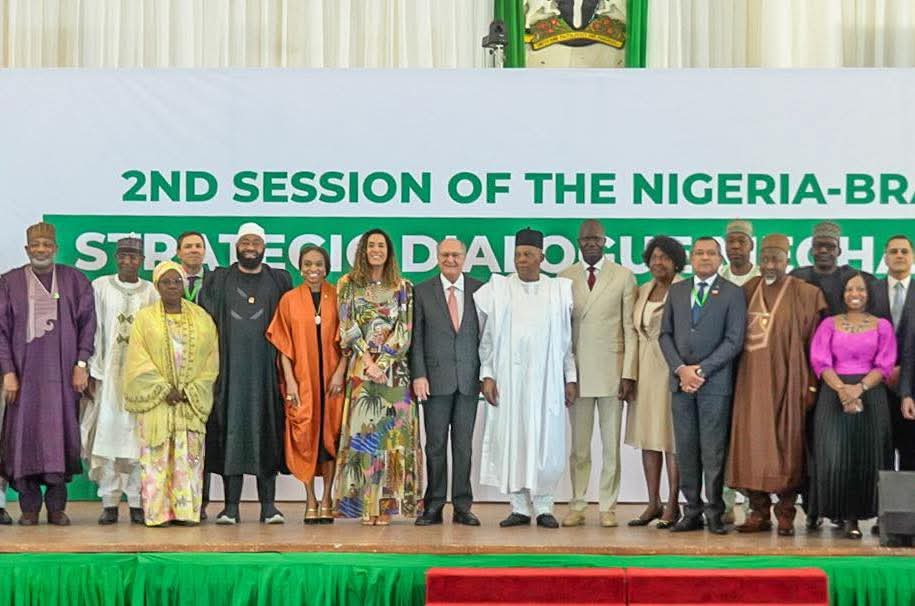The Federal Government of Nigeria FG has taken a bold step forward in its health sector transformation agenda with the deepening of bilateral ties between Nigeria and Brazil, focusing on strategic collaboration in pharmaceutical production, digital health innovation, and medical workforce development.
Speaking at the 2nd Session of the Nigeria-Brazil Strategic Dialogue Mechanism held at the State House Conference Center, Abuja.
FG Commissions 5 Projects in Abeokuta to Strengthen Healthcare
The Minister of State for Health and Social Welfare, Dr. Iziaq Adekunle Salako, emphasized that the evolving partnership between both nations marks a new era in Nigeria’s health diplomacy, anchored in the priorities of universal health coverage, medicine security, and health system strengthening.
“This partnership is a powerful affirmation of President Bola Ahmed Tinubu’s Renewed Hope Agenda, which is driving an ambitious Health Sector Renewal Investment Initiative focused on expanding access, enhancing equity, and modernizing healthcare delivery in Nigeria,”
FG Commits to Improving Health Conditions of Displaced Persons
Among the priority areas of collaboration outlined are:
• Pharmaceutical Manufacturing: Nigeria will work with leading Brazilian pharmaceutical companies to scale up local drug and vaccine production, drawing lessons from Brazil’s successful Generic Drug Act and global leadership in biomedicine.
• Digital Health & Data Systems: With Brazil’s strong track record in health information systems and surveillance, both countries will cooperate to strengthen Nigeria’s digital backbone for public health delivery and disease tracking.
• Medical Education & Workforce Exchange: The pact proposes structured exchange programmes for Nigerian doctors, nurses, and public health professionals to receive advanced training in Brazil’s family health and primary care systems.
The partnership also includes plans to pilot Brazil’s Family Health Teams model in select Nigerian communities as a cornerstone of Nigeria’s quest to accelerate progress towards universal health coverage (UHC).
Nigeria is also proposing a dedicated Health Working Group and a Five-Year Joint Action Plan to operationalize commitments across disease prevention, research collaboration, and vaccine development.
Dr. Salako spotlighted recent wins in Nigeria’s health sector as a strong foundation for this collaboration, including:
• Revitalization of primary healthcare reaching over 37 million Nigerians;
• Expansion of health insurance by 15% in one year through innovative schemes;
• Establishment of 12 new tertiary health institutions and over 500 high-impact projects across 61 federal hospitals;
• First-ever WHO prequalification of Nigerian-made medicines in West and Central Africa.
He also commmeded initiatives like the NASENI-TromentBiotechnology Factory and the upcoming Active Pharmaceutical Ingredient (API) factory as evidence of Nigeria’s seriousness in unlocking its health value chain.
“This is more than cooperation it is a strategic alliance for shared progress. Nigeria stands ready to learn from Brazil’s experience and to create a partnership that delivers real outcomes for our citizens,”
As Nigeria continues to prioritize health security, local manufacturing, and data-driven service delivery, the Ministry affirmed its commitment to ensuring that this partnership with Brazil becomes a model of South-South collaboration impactful, sustainable, and people-centered.





